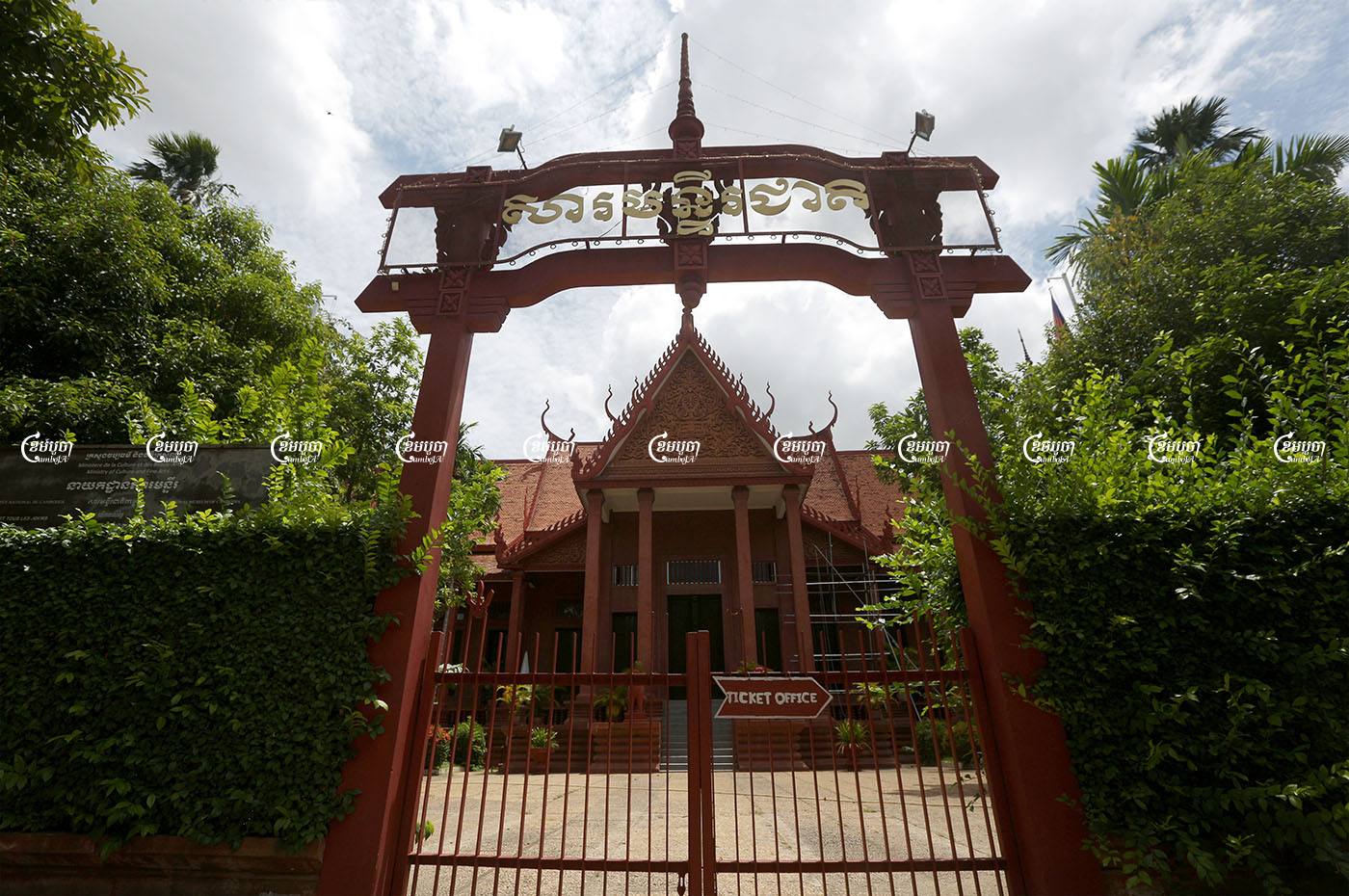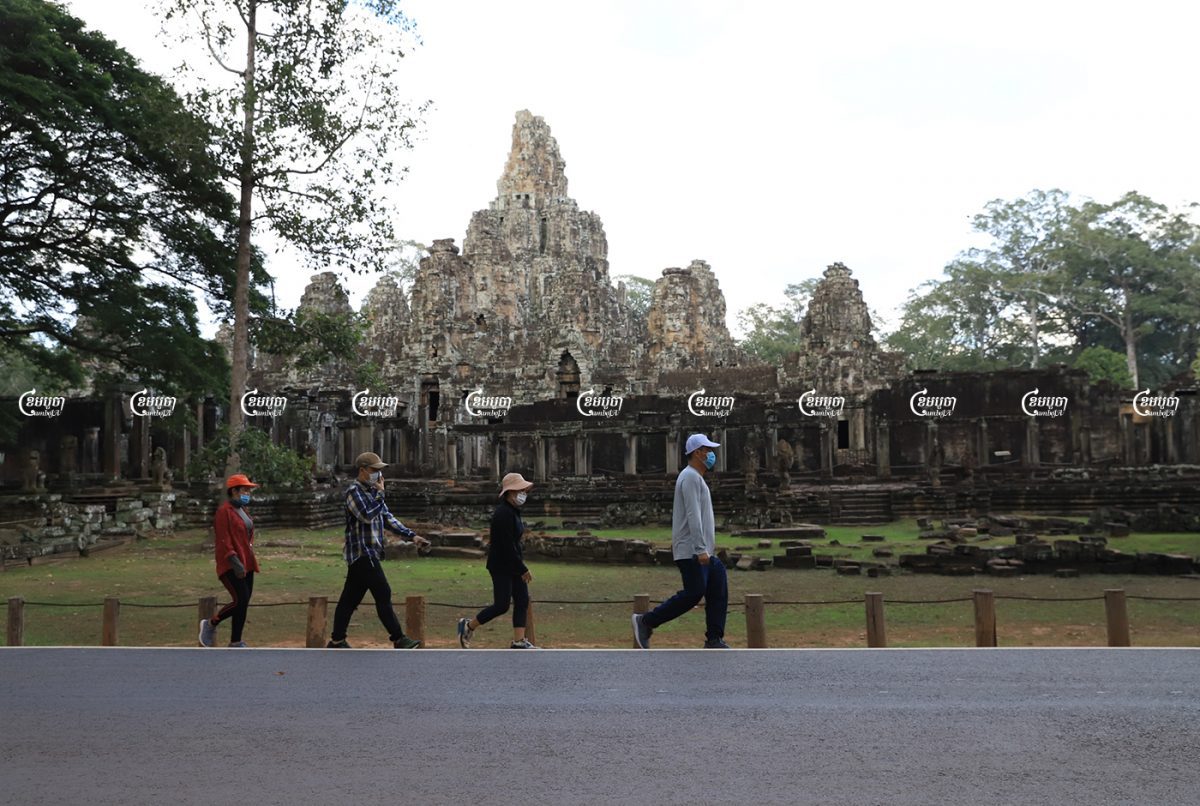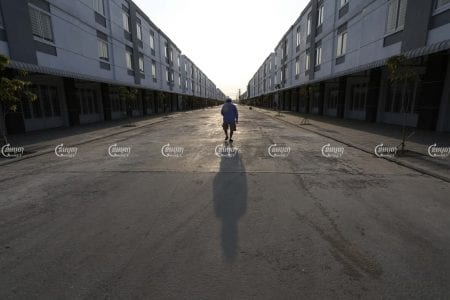The collapse of Cambodia’s tourism sector following widespread travel bans to stem the global outbreak of COVID-19 has had a devastating impact on the hundreds of thousands of workers who relied on the flow of international tourists to keep their families fed. But tourism officials say that the country’s fast-moving vaccination campaign could allow tourism to reopen by the end of the year.
Kim Serey Rath, the director of the Tourism Ministry’s Tourist Accommodation Services and Food Management Department, told CamboJA that vaccinated tourists could potentially be able to enter the Kingdom if domestic vaccination levels continue to rise, especially among staff at restaurants, hotels and resorts.
“We want to reopen tourism as much as possible by late 2021 as long as we manage the impact of COVID-19 well, even foreigners with vaccine cards,” he said. “We encourage them to come, as long as we manage our vaccination campaign and safety measures.”
As of August 19, Cambodia has vaccinated 86.12% of its target population of 10 million people according to the Ministry of Health. 39.48% of children and adolescents aged between 12 and 17 have also been vaccinated, out of a target population of more than 1.9 million people. By any measure, it’s been an incredible feat.
But for those who once depended on the steady arrivals of tourists into Cambodia to earn a living, the last year and a half have been hard to bear.
Leang Ratha, 41, who previously worked as a guide for Japanese tourists in Siem Reap province, said that his life had grown worse and worse since the sector’s collapse.
“It’s affecting my mental health and I am so exhausted,” he said. “Even though I changed [jobs] to sell duck at Phsar Leu market for some time during the lockdown. I started farming, but I don’t expect one hectare to generate as much profit as being a guide earning $800 a month, because there is less rain, and the other villagers’ paddy rice is also damaged by [drought].”
Ratha has two daughters — one four years old, the other seven. Both are now studying online since schools were closed due to the pandemic, meaning he has had to buy a phone and internet connection in addition to his regular expenses.
“My wife is studying for a bachelor degree at Pannasastra University of Cambodia at Siem Reap,” he said. “She stays home to take care of our children. She doesn’t work as well, so it’s hard to find income these days.”
Ratha has been working as a guide since 2007. Now, he says, he has trouble even sleeping at night.
“Currently, we are facing many challenges [because] it’s hard to find income, so we only have our savings and our parents for some help,” he said. “If COVID-19 continues, not only me but everyone will die. We cannot bear this problem anymore.”
Ministry of Economy and Finance spokesman Meas Soksensan said that COVID-19 has had a severe impact on almost every sector of Cambodia’s economy, but that the nation’s service sector had been hit especially hard due to the drop in international travellers. Many of the roughly 800,000 people once employed in the tourism sector have since turned to other jobs for survival, working as farmers, wage-laborers or interpreters.
“The government has helped people who work in the tourism sector who have been affected by COVID-19 as well, and vaccination is a new breath for impacted sectors to come up again,” Soksensan said. “That’s why the government has tried to push the vaccination campaign.”
On August 11, the Ministry of Tourism announced that that during the first half of 2021, Cambodia received just 102,560 international tourists, a decrease of 91.3%, compared to the same period last year, while the number of Cambodians who went abroad was 10,538, a decrease of 96.6% compared to the same period in 2020.
In the first half of 2021, the total number of domestic tourists was 1,982,641, a decrease of 37.3% compared to the same period in 2020. Meanwhile, the total number of domestic and foreign tourists was 141,988.

Chhay Sivlin, the president of the Cambodian Association of Travel Agents (CATA), said that she supported opening the nation to vaccinated tourists.
“It cannot wait, we will die before COVID-19 disappears because tourism can affect other sectors indirectly as well, so a policy of opening [the country] to vaccinated international tourists by the ministry and vaccinations for Cambodians are the best choice to bring it back,” she said.
Sivlin said that around 4,000 tourist businesses have been closed down including hotels, guesthouses, restaurants, spas, massage parlours and clubs. She said that the owners of many of those enterprises had had to cut salaries by up to 70% before eventually closing down, but that those services would return once COVID-19 was under control.
Kranh Seha, 38, a guide who worked with German tour groups in Siem Reap, said that no international tourists had come to visit the temples at Angkor Wat since the Ministry of Tourism had ordered the Kingdom’s closure to tourists in February 2020.
“It’s such a struggle to spend money every day on food, electricity, and my two little daughter’s equipment,” he said. “I also borrowed from the bank, so we have to use our savings and sell our possessions [such as jewellery] to solve the problem temporarily. It’s hard to survive if tourism won’t come back.”
Since he started working as a guide in 2014, Seha could earn around $700 a month. With tips, he could sometimes earn another hundred on top of that. Now, he depends on his wife’s income from working in Phnom Penh just to pay the daily expenses.
“I live with constant pressure, as I used to earn an income for my family, but now [I earn] nothing, and I really give thanks to my wife who understands and works hard during this pandemic — we understand each other,” he said.
Ho Vandy, president of Cambodia’s National Tourism Alliance, said that the pandemic had affected not just workers employed by the tourism sector, but investors as well.
“To solve this problem … the vaccination campaign for Cambodians will be a big contribution to waking up the tourism industry again,” he said. “Because people can travel locally freely and without fear, and the tourist cycle will live again.”
Asian Vision Institute director Chheng Kimlong said that Cambodia’s tourism sector had reduced its operations by as much as 80%.
“It depends on how we manage COVID-19,” he said. “If Cambodia can manage well by vaccination, and hygiene quality to build trust for tourists, they will visit us locally and internationally. International cooperation is also the best solution to persuade vaccinated people to travel.”
Heng Sophea, 33, who once guided English-speaking and German tourists, now relies on local tourism to survive. When the COVID-19 situation in Cambodia was a bit better, he says, he used to take domestic tourists around Angkor, the Tonle Sap lake and Kulen Mountain, bringing in about $20 a day.
“I changed myself to be online and make a Facebook page, but it doesn’t work well because I am not an expert on it,” he said. “It’s hard to find any income during this crisis, so I stay home to take care of my two sons, one four-year-old and a one-year-old. So I rely on my wife as a doctor for support, and my parents in law.”
Many of those who lost their jobs are now struggling to pay back the money they had previously borrowed from banks. San Sat, 32, a taxi driver, said that he had once been able to earn as much as $120 in two days driving foreign tourists around Angkor and Kulen Mountain.
“Since Siem Reap has no foreigners visiting, I stay home without income,” he said. “I have to support my daughter, and my wife stays home to take care of her. It’s hard because we need to take money from our savings.”
Before the pandemic, Sat had borrowed $12,000 from the bank to upgrade the car he used to earn a living. Now, he says, he can hardly afford to pay the loan back.
“I hope everything will be better soon, and I can go back again to work as a taxi driver at Siem Reap,” he said. “I hope COVID-19 will disappear soon if we are all careful and vaccinated.”









